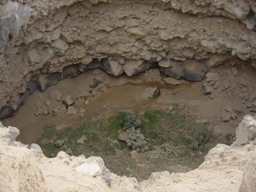
Meteorite crater
So we cross the border to Turkey at Bazargan. Clearance on the Iranian side follows through as pleasantly as when we entered the country. Passports and carnet are immediately stamped and nobody searches our land cruiser so that all formalities are completed in just under an hour and we get away with not paying a compensation fee for the diesel as well.
On the Turkish side the scene is essentially unfriendly and more chaotic. It is hard to imagine that this could be the extended European border some time in the future. We work our way through the chaos and the control slip and finally we are allowed to enter the country. Right behind the border we go through one checkpoint after the other, one almost as unfriendly as the next - and we kind of wish we were back in Iran. All around us tanks, guns and soldiers: ready for action behind sandbags. A Turkish friend of ours had already warned us: there is war in the Kurdish territory and now we believe him. Fortunately, after obtaining permission by walkie-talkie a military patrol lets us drive up to the spot where a meteorite hit in 1920 forming the world' s apparently second largest crater on impact.
 Meteorite crater |
We set up our first camp right in the mountains at the Ishak Pasa palace. At this altitude of over 2,000 meters it is very cold and autumnal so that during dinner we hole up under our awning and try unsuccessfully to put our just about brand-new Webasto heater into operation. Here we go with brand-name products: they all seem to be built for Central European roads only! Well, the heater did actually work properly twice.
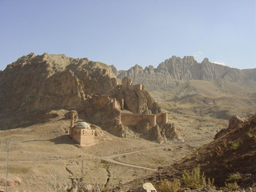 Ishak Pasa |
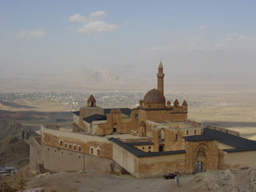 Ishak Pasa |
We pass Ararat Mountain (5,137 meters) where Noah's Ark was supposed to have run aground and take the beautiful mountain road up to an altitude of 2,600 meters across a volcanic landscape with numerous hardened lava beds until we reach Lake Van (Van Gölü). Shortly before the pass we meet two cyclists from Berlin. They tell us that they encountered a Kurdish guy this morning who showed them his pistol and asked them to hand over their valuables. Fortunately, the Berliners had stronger nerves - we are warned!
-small.jpg) Mount Ararat (5,137 meters) |
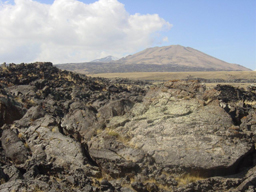 Lava rock mass |
The huge Lake Van (Van Gölü), with a size of 3,600 square kilometers, was created in the 15th century by the eruption of Mount Nemrut when the cooled and hardened lava formed a dam stopping the drainage of the river basin. We enjoy a few hours driving along the waterfront of this dark-blue lake.
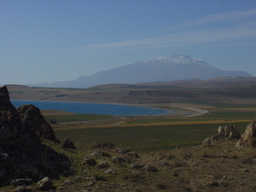 Lake Van (Van Gölü) |
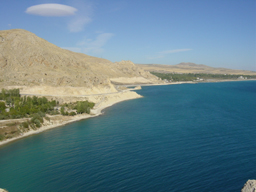 Lake Van (Van Gölü) |
Today we set up camp in the extinct crater of the volcano. We estimate the crater's diameter at about 5 kilometers with two mountain lakes, a deciduous forest and surrounding steep rock faces. The leaves have their autumn colors and observing the blue sky we get a real „Indian summer„ feeling. Spontaneously we stay at this beautiful spot for two nights.
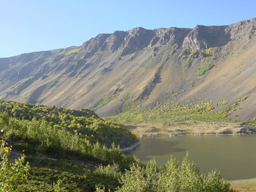 Crater landscape |
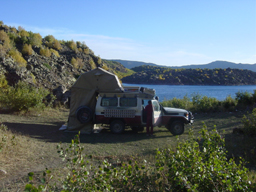 Camping in the crater |
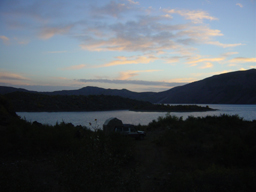 Crater beauty at twilight |
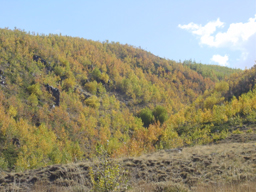 Autumn in the volcano |
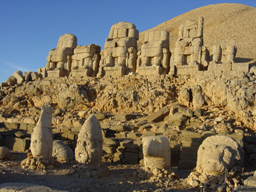 Nemrut colossi |
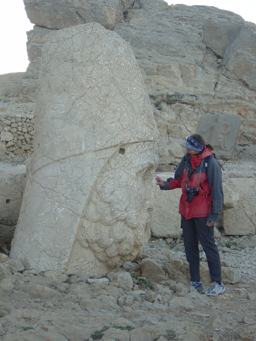 Nemrut stone deity |